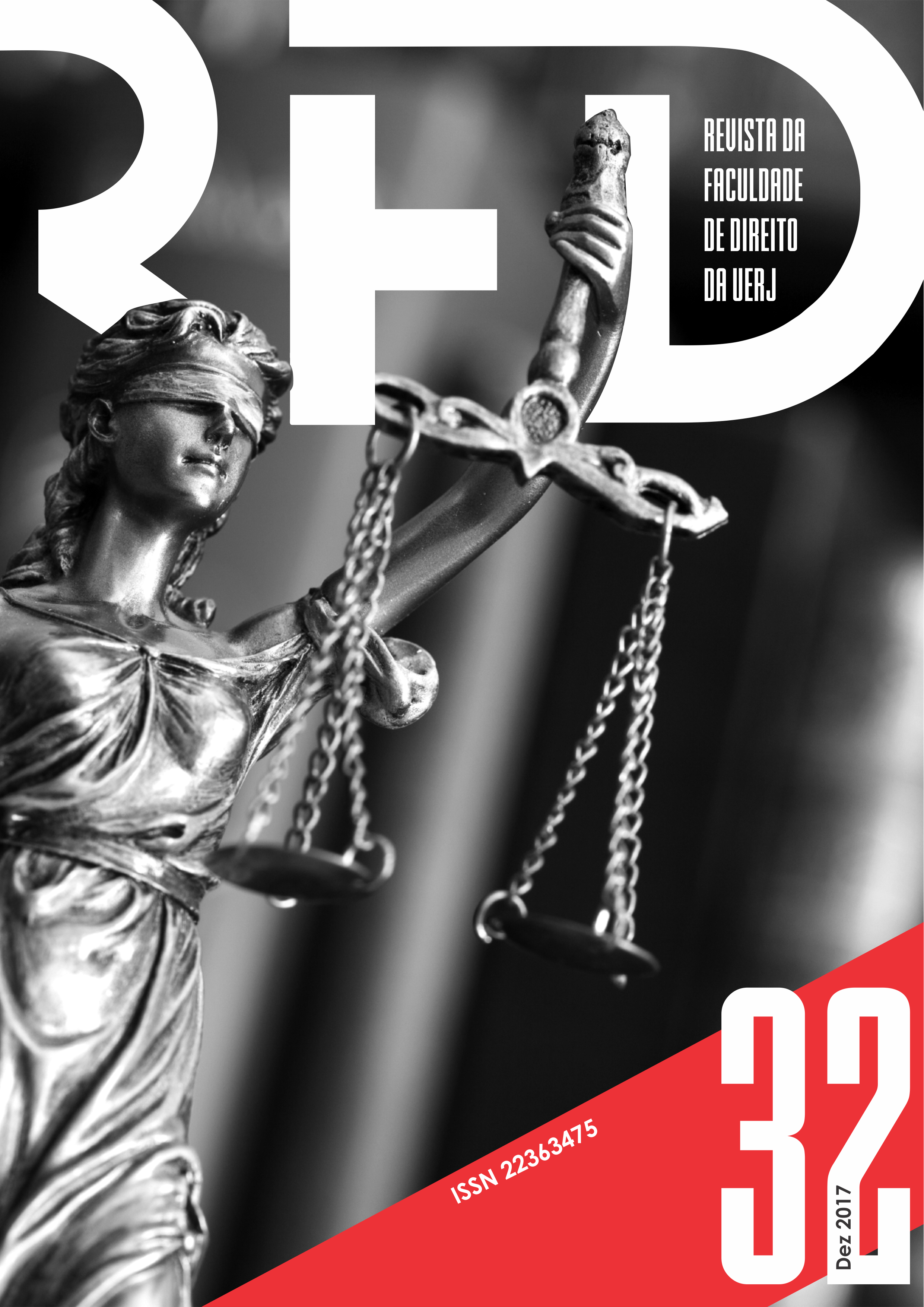DIREITO VIVENTE ENTRE O TEMPO E OS CONTRATEMPOS DA TÉCNICA
DOI:
https://doi.org/10.12957/rfd.2017.22978Palavras-chave:
Direito. Técnica. Tempo. Urgência. Exceção.Resumo
DOI: 10.12957/rfd.2017.22978O artigo investigou a obra Diritto Vivente de Eligio Resta, jurista e filósofo italiano. A análise iniciou pela caracterização do Direito Vivente, que significa o direito vivo, cuja construção linguística apresenta o lado “quente” do Direito, em oposição ao que não evolui, ou “evolui” premido pela urgência e exceção, desconsiderando o que lhe é mais essencial: o vivente. Além da caracterização o artigo enfatizou duas categorias da obra: técnica e tempo. A técnica, na perspectiva vivente, opera dentro da sociedade, proporcionando diversos questionamentos. Desses, dois foram aqui desenvolvidas com maior profundidade: os limites a serem impostos pelo Direito e a qualidade das decisões no âmbito de uma sociedade de risco. O tempo, por sua vez, na dimensão vivente de Resta, enfrenta a emergência e a exceção, numa visão de regulação, contratempos e complexidade. Ao final da obra, observa-se que na busca pelo equilíbrio entre suas funções de estabilizar expectativas e guiar comportamentos, o “Direito Vivente,” é o resultado de uma série de processos graças aos quais se passa da mera exegese à hermenêutica do texto. Essa interpretação e aplicação têm papel determinante, com vistas a atender as emergências, reduzindo, dentro do possível, o grau de sacrifício dos direitos.
Downloads
Publicado
Como Citar
Edição
Seção
Licença
Direitos Autorais
oArtigos publicados na Revista da Faculdade de Direito da UERJ (RFD/UERJ)
Os Direitos autorais dos artigos publicados pertencem à Revista da Faculdade de Direito da UERJ (RFD/UERJ). É permitida a reprodução total ou parcial dos artigos desde que citada a fonte.
oReprodução parcial de outras publicações
Artigos submetidos que contiverem partes de texto extraídas de outras publicações deverão obedecer aos limites especificados para garantir originalidade do trabalho submetido. Plágio em todas as suas formas constitui comportamento antiético e é inaceitável.
Recomenda-se evitar a reprodução de tabelas e ilustrações, extraídas de outras publicações. O artigo que contiver reprodução de uma ou mais tabelas e/ou ilustrações de outras publicações só será encaminhado para análise se vier acompanhado de permissão escrita do detentor do direito autoral do trabalho original para a reprodução especificada na Revista da Faculdade de Direito da UERJ (RFD/UERJ). A permissão deve ser endereçada ao autor do trabalho submetido. Em nenhuma circunstância a Revista da Faculdade de Direito da UERJ (RFD/UERJ) e os autores dos trabalhos publicados nesta revista repassarão direitos assim obtidos.
·Os trabalhos não aceitos para a publicação serão devolvidos aos autores, se solicitado.
A Revista da Faculdade de Direito está licenciada com uma Licença Creative Commons Atribuição 4.0 Internacional.
Este trabalho está licenciado sob uma Licença Creative Commons 4.0, Atribuição-Sem Derivações.
Esta licença permite copiar e redistribuir o material em qualquer suporte ou format para qualquer fim, mesmo que comercial, desde de que citada a autoria original.











